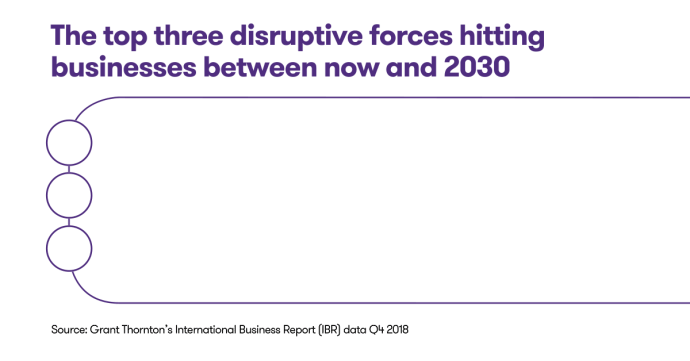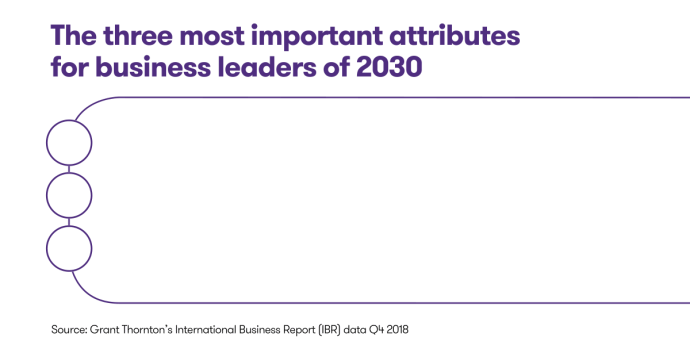-
Why Grant Thornton
Whether you’re growing in one market or many, looking to operate more effectively, managing risk and regulation, or realising stakeholder value, our firms can help.
-
Culture and experience
Grant Thornton’s culture is one of our most valuable assets and has steered us in the right direction for more than 100 years.
-
Global scale and capability
Beyond global scale, we embrace what makes each market unique, local understanding on a global scale.
-
Join our network
In a world that wants more options for high quality services, we differentiate in the market to grow sustainably in today’s rapidly changing environment.
-
Leadership governance and quality
Grant Thornton International Ltd acts as the coordinating entity for member firms in the network with a focus on areas such as strategy, risk, quality monitoring and brand.
-
Africa
24 member firms supporting your business.
-
Americas
31 member firms, covering 44 markets and over 20,000 people.
-
Asia-Pacific
19 member firms with nearly 25,000 people to support you.
-
Europe
53 member firms supporting your business.
-
Middle East
8 member firms supporting your business.
-
Business consulting services
Our business consulting services can help you improve your operational performance and productivity, adding value throughout your growth life cycle.
-
Business process solutions
We can help you identify, understand and manage potential risks to safeguard your business and comply with regulatory requirements.
-
Business risk services
The relationship between a company and its auditor has changed. Organisations must understand and manage risk and seek an appropriate balance between risk and opportunities.
-
Cybersecurity
As organisations become increasingly dependent on digital technology, the opportunities for cyber criminals continue to grow.
-
Forensic services
At Grant Thornton, we have a wealth of knowledge in forensic services and can support you with issues such as dispute resolution, fraud and insurance claims.
-
Mergers and acquisitions
We work with entrepreneurial businesses in the mid-market to help them assess the true commercial potential of their planned acquisition and understand how the purchase might serve their longer-term strategic goals.
-
Recovery and reorganisation
Workable solutions to maximise your value and deliver sustainable recovery.
-
Transactional advisory services
We can support you throughout the transaction process – helping achieve the best possible outcome at the point of the transaction and in the longer term.
-
Valuations
We provide a wide range of services to recovery and reorganisation professionals, companies and their stakeholders.
-
Sustainability advisory
We can assist you with a variety of sustainability advice depending on your needs, ranging from initial strategy development, reporting and compliance support, through to carbon measurement and management.

-
IFRS
At Grant Thornton, our IFRS advisers can help you navigate the complexity of financial reporting from IFRS 1 to IFRS 17 and IAS 1 to IAS 41.
-
Audit quality monitoring
Having a robust process of quality control is one of the most effective ways to guarantee we deliver high-quality services to our clients.
-
Global audit technology
Our global assurance technology platform provides the ability to conduct client acceptance, consultations and all assurance and other attestation engagements.
-
Sustainability assurance
Our sustainability assurance services are based on our global network of specialists, helping you make more efficient decisions for the good of your organisation.

-
Corporate and business tax
Our trusted teams can prepare corporate tax files and ruling requests, support you with deferrals, accounting procedures and legitimate tax benefits.
-
Direct international tax
Our teams have in-depth knowledge of the relationship between domestic and international tax laws.
-
Global mobility services
Through our global organisation of member firms, we support both companies and individuals, providing insightful solutions to minimise the tax burden for both parties.
-
Indirect international tax
Using our finely tuned local knowledge, teams from our global organisation of member firms help you understand and comply with often complex and time-consuming regulations.
-
Transfer pricing
The laws surrounding transfer pricing are becoming ever more complex, as tax affairs of multinational companies are facing scrutiny from media, regulators and the public
-
Africa tax desk
A differentiating solution adapted to the context of your investments in Africa.
-
Sustainability tax
Through our sustainability tax advisory services, we can advise how environmental taxes, incentives, and obligations can impact your progress, requiring alignment with governmental and legislative pressures.

-
 Banking Holding banking to account: the real diversity and inclusion pictureWe explore how the banking sector can continue to attract, retain and nurture women to build a more diverse and inclusive future.
Banking Holding banking to account: the real diversity and inclusion pictureWe explore how the banking sector can continue to attract, retain and nurture women to build a more diverse and inclusive future. -
 Sustainability From voluntary to mandatory ESG: How banks can future-proof their operationsAs we move from voluntary ESG initiatives to mandatory legislation, we explore what the banking sector needs to prioritise.
Sustainability From voluntary to mandatory ESG: How banks can future-proof their operationsAs we move from voluntary ESG initiatives to mandatory legislation, we explore what the banking sector needs to prioritise. -
 IFRS IFRS 9 - Audit of Expected Credit LossesGPPC releases The Auditor’s response to the risks of material misstatement posed by estimates of expected credit losses under IFRS 9
IFRS IFRS 9 - Audit of Expected Credit LossesGPPC releases The Auditor’s response to the risks of material misstatement posed by estimates of expected credit losses under IFRS 9 -
 growthiQ Steering your company to long-term successHistory has something important to tell us about the difficulties of steering a business to long-term success – through seismic shifts in technology, consumer demands and product development. With that in mind it’s unsurprising that over half the world’s largest companies in the early 1900s had shut their doors by the late 1990s. Some, however, have endured.
growthiQ Steering your company to long-term successHistory has something important to tell us about the difficulties of steering a business to long-term success – through seismic shifts in technology, consumer demands and product development. With that in mind it’s unsurprising that over half the world’s largest companies in the early 1900s had shut their doors by the late 1990s. Some, however, have endured.
-
 International Financial Reporting Standards Implementation of IFRS 17 ‘Insurance Contracts’The auditor’s response to the risks of material misstatement arising from estimates made in applying IFRS 17 ‘Insurance Contracts’
International Financial Reporting Standards Implementation of IFRS 17 ‘Insurance Contracts’The auditor’s response to the risks of material misstatement arising from estimates made in applying IFRS 17 ‘Insurance Contracts’ -
 IFRS Get ready for IFRS 17After twenty years of development the IASB has published IFRS 17 ‘Insurance Contracts’, find out more.
IFRS Get ready for IFRS 17After twenty years of development the IASB has published IFRS 17 ‘Insurance Contracts’, find out more.
-
 Global business pulse - industry analysis Mid-market recovery spreads to more industriesThe index results for 13 key industries of the mid-market reveals a very uneven recovery from COVID-19
Global business pulse - industry analysis Mid-market recovery spreads to more industriesThe index results for 13 key industries of the mid-market reveals a very uneven recovery from COVID-19 -
 Global business pulse - industry analysis A very uneven recovery across industriesThe index results for 13 key industries of the mid-market reveals a very uneven recovery from COVID-19
Global business pulse - industry analysis A very uneven recovery across industriesThe index results for 13 key industries of the mid-market reveals a very uneven recovery from COVID-19 -
 Global business pulse - Sector analysis Clear patterns of damage from COVID-19 across the industriesThe index results for 12 key sectors of the mid-market reveal just how much or little the various parts of the economy were impacted by COVID-19.
Global business pulse - Sector analysis Clear patterns of damage from COVID-19 across the industriesThe index results for 12 key sectors of the mid-market reveal just how much or little the various parts of the economy were impacted by COVID-19. -
 Not for profit Mission: possible – putting impact at the heart of charityGlobal charitable continues to decline and charity leaders are increasingly looking at their own unique impact journey.
Not for profit Mission: possible – putting impact at the heart of charityGlobal charitable continues to decline and charity leaders are increasingly looking at their own unique impact journey.
-
 Access to finance Raise finance to invest in changePrepare your business to raise finance to invest in change.
Access to finance Raise finance to invest in changePrepare your business to raise finance to invest in change. -
 Private equity firms Private equity in the mid-market: reshaping strategies for 2021When the global COVID-19 pandemic stormed across the globe in early 2020, the private equity sector was hit hard but deals are coming back to the market.
Private equity firms Private equity in the mid-market: reshaping strategies for 2021When the global COVID-19 pandemic stormed across the globe in early 2020, the private equity sector was hit hard but deals are coming back to the market. -
 Mid-market businesses Getting ready for private equity investmentOur specialists explore how private equity firms are now working with their portfolios and how the mid-market can benefit from investment.
Mid-market businesses Getting ready for private equity investmentOur specialists explore how private equity firms are now working with their portfolios and how the mid-market can benefit from investment. -
 Mid-market businesses Myth-busting private equityNervous about partnering with Private Equity? We explore some of the common myths we come across when speaking to mid-market businesses about PE investment.
Mid-market businesses Myth-busting private equityNervous about partnering with Private Equity? We explore some of the common myths we come across when speaking to mid-market businesses about PE investment.
-
 Public sector Helping build the government of tomorrow, todayLearn about the Grant Thornton US public sector team.
Public sector Helping build the government of tomorrow, todayLearn about the Grant Thornton US public sector team. -
 Global business pulse - industry analysis Mid-market recovery spreads to more industriesThe index results for 13 key industries of the mid-market reveals a very uneven recovery from COVID-19
Global business pulse - industry analysis Mid-market recovery spreads to more industriesThe index results for 13 key industries of the mid-market reveals a very uneven recovery from COVID-19 -
 Global business pulse - industry analysis A very uneven recovery across industriesThe index results for 13 key industries of the mid-market reveals a very uneven recovery from COVID-19
Global business pulse - industry analysis A very uneven recovery across industriesThe index results for 13 key industries of the mid-market reveals a very uneven recovery from COVID-19 -
 Global business pulse - Sector analysis Clear patterns of damage from COVID-19 across the industriesThe index results for 12 key sectors of the mid-market reveal just how much or little the various parts of the economy were impacted by COVID-19.
Global business pulse - Sector analysis Clear patterns of damage from COVID-19 across the industriesThe index results for 12 key sectors of the mid-market reveal just how much or little the various parts of the economy were impacted by COVID-19.
-
 Industries European Real Estate PodcastJessica Patel, Tax Partner at Grant Thornton UK speaks with tax partners and directors across the network to share their insights on the real estate market and some of the challenges.
Industries European Real Estate PodcastJessica Patel, Tax Partner at Grant Thornton UK speaks with tax partners and directors across the network to share their insights on the real estate market and some of the challenges. -
 Industries European Real Estate PodcastJessica Patel, Tax Partner at Grant Thornton UK speaks with tax partners and directors across the network to share their insights on the real estate market and some of the challenges.
Industries European Real Estate PodcastJessica Patel, Tax Partner at Grant Thornton UK speaks with tax partners and directors across the network to share their insights on the real estate market and some of the challenges. -
 Global business pulse - industry analysis Mid-market recovery spreads to more industriesThe index results for 13 key industries of the mid-market reveals a very uneven recovery from COVID-19
Global business pulse - industry analysis Mid-market recovery spreads to more industriesThe index results for 13 key industries of the mid-market reveals a very uneven recovery from COVID-19 -
 Global business pulse - industry analysis A very uneven recovery across industriesThe index results for 13 key industries of the mid-market reveals a very uneven recovery from COVID-19
Global business pulse - industry analysis A very uneven recovery across industriesThe index results for 13 key industries of the mid-market reveals a very uneven recovery from COVID-19
-

-
 Global business pulse - industry analysis Mid-market recovery spreads to more industriesThe index results for 13 key industries of the mid-market reveals a very uneven recovery from COVID-19
Global business pulse - industry analysis Mid-market recovery spreads to more industriesThe index results for 13 key industries of the mid-market reveals a very uneven recovery from COVID-19 -
 Global business pulse - industry analysis A very uneven recovery across industriesThe index results for 13 key industries of the mid-market reveals a very uneven recovery from COVID-19
Global business pulse - industry analysis A very uneven recovery across industriesThe index results for 13 key industries of the mid-market reveals a very uneven recovery from COVID-19 -
 Retail How retail is positioning for successCOVID-19 provided some hard lessons for the retail industry. It is time to turn those into sustainable and well executed growth strategies in 2021.
Retail How retail is positioning for successCOVID-19 provided some hard lessons for the retail industry. It is time to turn those into sustainable and well executed growth strategies in 2021.
-
 Technology Mid-market tech companies lead the way on diversity and inclusionWe explore how the mid-market tech sector can continue to build and nurture a culture that’s increasingly more diverse and inclusive for women.
Technology Mid-market tech companies lead the way on diversity and inclusionWe explore how the mid-market tech sector can continue to build and nurture a culture that’s increasingly more diverse and inclusive for women. -
 Tax Resetting global tax rules after the pandemicBusinesses are seeing rising challenges, and finance heads are dealing with a range of new measures. To say the next 12 months are critical for businesses is an understatement.
Tax Resetting global tax rules after the pandemicBusinesses are seeing rising challenges, and finance heads are dealing with a range of new measures. To say the next 12 months are critical for businesses is an understatement. -
 TECHNOLOGY International tax reform: the potential impact on the technology industryIn this article, we’ve summarised key elements of the global tax reform proposals, their potential impact on technology industry and advice from our digital tax specialists on what technology companies can do to prepare.
TECHNOLOGY International tax reform: the potential impact on the technology industryIn this article, we’ve summarised key elements of the global tax reform proposals, their potential impact on technology industry and advice from our digital tax specialists on what technology companies can do to prepare. -
 TMT TMT industry: Fully charged or on standby?Our research revealed five key trends that resonated with Technology, Media and Telecoms (TMT) industry leaders around the world. We asked a panel of our experts from UK, US, India Ireland and Germany, to give us their reaction to the findings.
TMT TMT industry: Fully charged or on standby?Our research revealed five key trends that resonated with Technology, Media and Telecoms (TMT) industry leaders around the world. We asked a panel of our experts from UK, US, India Ireland and Germany, to give us their reaction to the findings.
-
 TMT TMT industry: Fully charged or on standby?Our research revealed five key trends that resonated with Technology, Media and Telecoms (TMT) industry leaders around the world. We asked a panel of our experts from UK, US, India Ireland and Germany, to give us their reaction to the findings.
TMT TMT industry: Fully charged or on standby?Our research revealed five key trends that resonated with Technology, Media and Telecoms (TMT) industry leaders around the world. We asked a panel of our experts from UK, US, India Ireland and Germany, to give us their reaction to the findings. -
 Cybersecurity One size fits nothingTechnology companies must adopt a new approach to digital risk: those that successfully develop a reputation for digital trust by demonstrating an unwavering commitment to cyber security and data privacy will be able to carve out a competitive advantage.
Cybersecurity One size fits nothingTechnology companies must adopt a new approach to digital risk: those that successfully develop a reputation for digital trust by demonstrating an unwavering commitment to cyber security and data privacy will be able to carve out a competitive advantage. -
 Technology, media & telecommunications Why it’s time for a 5G reality checkFigures suggest the mobile sector is maturing. While data usage continues to soar, mobile revenues are expected to flatten out over the next few years.
Technology, media & telecommunications Why it’s time for a 5G reality checkFigures suggest the mobile sector is maturing. While data usage continues to soar, mobile revenues are expected to flatten out over the next few years. -
 GrowthiQ Is blockchain right for your business?Blockchain has been seized upon by the financial services sector, where it is playing a crucial role in tracking and authenticating transactions.
GrowthiQ Is blockchain right for your business?Blockchain has been seized upon by the financial services sector, where it is playing a crucial role in tracking and authenticating transactions.
-
 International business Mid-market businesses lifted by rising tide of optimismOptimism among global mid-market business leaders rose to 67% in the first half of this year and they are markedly more optimistic about their prospects with global optimism having increased by 8%.
International business Mid-market businesses lifted by rising tide of optimismOptimism among global mid-market business leaders rose to 67% in the first half of this year and they are markedly more optimistic about their prospects with global optimism having increased by 8%. -
 Global business pulse - industry analysis Mid-market recovery spreads to more industriesThe index results for 13 key industries of the mid-market reveals a very uneven recovery from COVID-19
Global business pulse - industry analysis Mid-market recovery spreads to more industriesThe index results for 13 key industries of the mid-market reveals a very uneven recovery from COVID-19 -
 Hotels COVID-19: Checking in with the hotel industry one year onCOVID-19 provided some hard lessons for the hotel sector. It is time to turn those into sustainable and well executed growth strategies.
Hotels COVID-19: Checking in with the hotel industry one year onCOVID-19 provided some hard lessons for the hotel sector. It is time to turn those into sustainable and well executed growth strategies. -
 Global business pulse - industry analysis A very uneven recovery across industriesThe index results for 13 key industries of the mid-market reveals a very uneven recovery from COVID-19
Global business pulse - industry analysis A very uneven recovery across industriesThe index results for 13 key industries of the mid-market reveals a very uneven recovery from COVID-19
- By topic
-
Women in Business 2025
For 21 years, the Women in Business report has tracked the proportion of women in senior roles in the mid-market. Progress has been made but with gender equity over 25 years away, that isn’t soon enough.
-
Scaling sustainability
Mid-market firms are scaling sustainability for growth, not just compliance. Grant Thornton’s International Business Report (IBR) 2025 report reveals how sustainability investments are driving profitability, resilience and global expansion — despite regulatory shifts and political uncertainty.
-
Thriving through disruption
Instability has come to define the global business landscape and the ability for mid-market firms to thrive through disruption is becoming a key differentiator.
-
Trade in transition
A shifting global trade landscape is contributing to rising uncertainty, but could it also unlock new opportunites for adaptable mid-market businesses while larger companies opt to wait and see?
-
CFO success: Inspiring change in female mid-market leadership
Women holding the CFO role is nearing parity – reshaping finance leadership and potentially helping increase female representation across all senior roles.
-
International business: Mid-market growth and expansion
The mid-market looks to international business opportunities for growth.
-
Women in Business 2025: Impacting the missed generation
The 2025 Women in Business report explores the external pressures and internal drivers that impact gender diversity in senior roles in the mid-market.
-
CFO success: Inspiring change in female mid-market leadership
Women holding the CFO role is nearing parity – reshaping finance leadership and potentially helping increase female representation across all senior roles.
-
Women in tech: A pathway to gender balance in top tech roles
Grant Thornton’s 2024 Women in Business data suggests we are far from achieving parity within the mid-market technology sector.
-
Women in leadership: a pathway to better performance
What makes the benefits of gender parity compelling is the impact it can have on commercial performance.
-
Women in Business 2024
2024 marks the 20th year of Women in business where we monitor and measure the proportion of women occupying senior management roles around the world.
-
Women in business: Regional picture
We saw an increase in the percentage of senior management roles held by women, on a global level, but there are some significant regional and country variations.
-
Pathways to Parity: Leading the way
To push towards parity of senior management roles held by women, who leads within an organisation is vital.
-
Generating real change with a long-term focus
The most successful strategy to achieve parity of women in senior management is one which stands alone, independent of an ESG strategy.
-
People at the heart of great business
Businesses have started to put guidelines and incentives in place, focused on driving employees back to the office.
-
Scaling sustainability
Mid-market firms are scaling sustainability for growth, not just compliance. Grant Thornton’s International Business Report (IBR) 2025 report reveals how sustainability investments are driving profitability, resilience and global expansion — despite regulatory shifts and political uncertainty.
-
The journey to a sustainable future
The world needs a sustainable mid-market. It’s vital to economies, societies and the planet. Businesses, governments, and other stakeholders must work collaboratively to make sure this vital part of the world economy succeeds.
-
Ten considerations for preparing TCFD climate-related financial disclosures
Insights for organisations preparing to implement the International Sustainability Standards Board (ISSB)’s Standards.
-
COP28
COP28 was the first time there has been a global stocktake on progress against the Paris Agreement.
-
Transition Plan Taskforce publishes its final disclosure framework
As organisations in the private sector make commitments and plans to reach net zero, there's a growing need for stakeholders to be able to assess the credibility of their transition plans.
-
Thriving through disruption
Instability has come to define the global business landscape and the ability for mid-market firms to thrive through disruption is becoming a key differentiator.
-
Trade in transition
A shifting global trade landscape is contributing to rising uncertainty, but could it also unlock new opportunites for adaptable mid-market businesses while larger companies opt to wait and see?
-
International business: Mid-market growth and expansion
The mid-market looks to international business opportunities for growth.
-
Top five constraints to international business in the mid-market
Top five major constraints that are testing the mid-market’s ability to grow their businesses internationally.
-
Brand and international marketing – breaking global barriers
Brand has been identified as a key driver of mid-market success when looking to grow and develop international business.
-
The key to international business: Investing in people
How can recruitment and retention help grow international business?
-
Building resilience in international business
Evolving supply chains and trade patterns amid ongoing global uncertainty.
-
Example Financial Statements
The 2025 Interim Financial Statements provide general guidance on preparing interim financial statements in accordance with IFRS Accounting Standards.
-
IFRS 8
Our ‘Insights into IFRS 8’ series considers some key implementation issues and includes interpretational guidance in certain problematic areas.
-
IFRS 16
Are you ready for IFRS 16? This series of insights will help you prepare.
-
IAS 36
Insights into IAS 36 provides assistance for preparers of financial statements and help where confusion has been seen in practice.
-
IFRS 17
Explaining the key features of the Standard and providing insights into its application and impact.
-
Pillar 2
Key updates and support for the global implementation of Pillar 2.
-
Global expatriate tax guide
Growing businesses that send their greatest assets – their people – overseas to work can face certain tax burdens, our global guide highlights the common tax rates and issues.
-
International indirect tax guide
Navigating the global VAT, GST and sales tax landscape.
-
Global transfer pricing guide
Helping you easily find everything you need to know about the rules and regulations regarding transfer pricing and Country by Country reporting for every country you do business with.
Global business is facing a wave of disruptive influences that look set to spark the Fourth Industrial Revolution. We explore how the way professionals work is evolving, the leadership skills that will be needed within the dynamic mid-market to thrive, and how organisations can stay competitive in the war for talent and customers in 2030.
The business world is arguably on the cusp of the greatest period of transformation since the First Industrial Revolution in the late 1700s and early 1800s. For the business world, Industry 4.0 is presenting both challenges in how to respond – and also opportunities, which could see organisations with the right leadership skills take advantage of new trends and emerge as leading players in their sectors.

The biggest disruptors will come from technology, with Grant Thornton’s 2019 International Business Report (IBR)[i] – which surveyed senior leaders in mid-market businesses around the world – suggesting the rise of the digitally connected world will be the greatest change, cited by 42% of respondents. This is closely followed by other technological advances, including artificial intelligence (AI) and big data at 40%; and increasing use of automation and robotics (35%).
Technology takeover: Al, the cloud and machine learning
Inmaculada Martinez is a tech pioneer and venture partner at Deep Science Ventures. She believes new trends in technology will change the way organisations work entirely over the next 10 to 15 years, with the Internet of Things, cloud-based infrastructure, AI and machine learning becoming commonplace, forcing organisations to rebuild their business models.
“In the healthcare sector, for example, where photographic evidence has to be analysed, that will be done by machine,” she says.

“You do not want a human to decide if you have cancer. You want a machine to analyse tens of thousands of photographs, your blood samples, CT scans or MRIs. Machines are spectacularly efficient at delivering results.”
This transformation of processes will have implications for the types of activity that are undertaken by humans, Martinez adds, with roles repositioned around elements which require creative thinking, tacit knowledge or social skills. Almost every industry will be affected, she predicts, from automotive to financial services.
People are power: Globalisation, talent and intellectual property
There are forces beyond technology which are also set to impact the world of work. Some 32% of IBR respondents highlighted the globalisation of resources such as finance, intellectual property and people, while 30% pointed to demographic changes.
Buhle Dlamini, a global speaker, author, and future and organisational culture expert at Tomorrow Today Global, also points to institutional change, environment and ethics, and social values as significant forces, along with demographics.
 “The changing demographics in today’s globalised world are forcing organisations to re-examine who their market is and the changes required in the make-up of such organisations to meet the new demands,” he says.
“The changing demographics in today’s globalised world are forcing organisations to re-examine who their market is and the changes required in the make-up of such organisations to meet the new demands,” he says.
“As the world continues to face the ever-increasing environmental threats of global warming, pollution and climate change, the higher the expectations are for ethical practices to be demonstrated by the business world. All of these forces are pushing a shift in social values as a whole.”
Justin Rix, a partner at Grant Thornton UK, highlights the impact of another generation entering the workforce over the next decade, and the challenges this will present for businesses looking to manage multiple generations.

“Generation Alpha will be joining the workforce, and they will expect purpose beyond salary,” he says.
“They will need to be engaged differently and they won’t understand the hierarchical approach to leadership as they will be used to their voices being heard in a different way through social media.
“This will be coupled with the prevalence of the ageing workforce, people being in work for longer and having multiple careers,” he adds. “The extremes of youth and age will have an impact on how flexible organisational culture will need to be, and this will drive the need for organisations to personalise their employer brand.”
A new skillset: Innovative, adaptive and collaborative
The changing landscape means business leaders need to adapt their own skills and those of their teams if they are to both remain competitive and take advantage of new opportunities in the marketplace.

According to the IBR data, current global mid-market executives believe that the most important attribute for a business leader in 2030 will be to be innovative – cited by 20% of respondents; compared to the 16% who believe this is required today. Meanwhile, 18% say being adaptive to change will be essential, compared to just 14% who see this as a key requirement in 2019. Being collaborative is also viewed as important, with 9% of respondents highlighting this, while 8% point to the need for the courage to take risks.
 Rohit Talwar, CEO of Fast Future and a specialist advisor on business transformation, disruptive strategies and radical innovation, says "the ability to adapt requires a number of leadership skills which may previously have been less important."
Rohit Talwar, CEO of Fast Future and a specialist advisor on business transformation, disruptive strategies and radical innovation, says "the ability to adapt requires a number of leadership skills which may previously have been less important."
“Digital literacy; the personal capabilities to manage themselves and manage their own emotions; and then the workplace competencies that help them do the job, so problem-solving, collaboration, big picture thinking, scenario thinking, making decisions. There’s a whole set of those skills that are all critical to helping us prepare for the future,” he says.
Future leaders will need to be both more open to new ideas and aware of their own limitations, believes Dlamini. “Creating the best culture to cope with disruption requires that leaders be the students of change and invite their teams to be curious with them,” he says.
“This means that leaders need to create a safe space and be willing to be vulnerable. Celebrate curiosity and experimentation and encourage teams to think beyond what is currently out there. This means leaving room for the new and even celebrating those who make exceptional mistakes in pursuit of something new and unique.
“This is not easy to achieve as organisations are living organisms that are creatures of habit, so to achieve it will require an ongoing shake-up.”
Sharing a vision: Strategy, direction and engagement
 Alongside this, there will still be a need for leaders of dynamic organisations to have a clear vision and be able to articulate that to the business, believes Kirsten Taylor-Martin, partner, private advisory, at Grant Thornton Australia.
Alongside this, there will still be a need for leaders of dynamic organisations to have a clear vision and be able to articulate that to the business, believes Kirsten Taylor-Martin, partner, private advisory, at Grant Thornton Australia.
“That being said, leaders need to understand that they don’t have to have all the answers – but do need to ask the right questions and have a team surrounding them who are just as passionate about the vision as they are,” she says.
They must also be willing and agile enough to break down obstacles and processes which have traditionally slowed down transformation, she adds. “Structure can cause additional red tape and slow the ability to change direction. Having less structure allows ideas to be easily adapted to the changing environment. Organisations need to be willing to trial ideas with low cost and take these options to market.”
Softer skills will also be essential in such an environment, particularly in the ability to engage staff and persuade them to follow a new vision. Gaurav Chaubey, a director in the advisory practice at Grant Thornton India, points to the need for more authentic, honest and direct conversations – which will be essential for designing a unique customer and talent experience.

“Authenticity means building one’s legitimacy through honest relationships that promote openness, build trust and elicit enthusiastic support,” he says.
“It also helps ensure one is able to have frequent conversations, and give and accept feedback graciously.” Resilience is another important attribute, he adds, with leaders required to demonstrate emotional strength, courage and responsiveness at the most trying times.
Building tomorrow’s talent: Training, development and recruitment
Alongside the skills that future leaders will themselves require, they will also have to build up the surrounding talent in the organisation to help them meet the challenges of tomorrow.
“People will be even more critical,” says Rix. “The ability to develop new skills quickly in order to keep up with the pace of change in the market is increasingly important. Recruit people who are comfortable working in ambiguous environments and who thrive on change.”
In order to obtain and retain this talent, businesses, especially in the hyper-competitive worlds of scale-ups and mid-market players, will need to refocus and perhaps restructure their recruitment processes. Successfully targeting change makers, and appealing to their more fluid approach to their careers, will require the use of specific advertising language, intelligent candidate identification, and flexible working opportunities .
A workforce that embraces change is going to be particularly important when it comes to grappling with the disruption that will come from more AI, automation and robotics entering the workplace, says Dlamini.
“Those who will thrive in this era are the ones that understand that these technologies alone cannot replace an entire workforce, but that they will greatly increase the efficiency of the tasks that the organisations perform going forward,” he points out.
“The key to success is going to be equipping existing and future talent to understand new technology and leverage it by doing what only humans can do. This requires an increase in the 'high touch’ human skills that are needed to connect with the human customers in the highly digitised world.”
Organisations will need to train people to help prepare them for when parts of their roles are taken over by machines or AI, both in using the technology itself and in being equipped for the higher-value activities that may come their way as a result – and also the potential emotional challenge of being ‘replaced’ by a machine.
“Departments such as marketing have already gone through this; for the last eight years growth hacking, which is how to create one-to-one campaigns using ads and real-time bidding, have been using AI,” says Martinez. “Companies have already started to put AI tools in the hands of individuals, and what has happened is that new jobs have emerged.”
Learning to think: Adapting, engaging and evolving
Talwar, though, points out that many people actually enjoy the less demanding elements of their roles, and will take time to adapt to the new reality of tackling more creative or higher-value activities. “You only have to look at how tired people are after a one-day workshop of using their brains and having to think,” he says.
“Most people aren’t trained or ready to do that. But there will be more of that kind of work, and that will be fine for a while, but then organisations will start to look to differentiate themselves so they will go back to injecting people into roles.
“We will go through some very messy cycles in the coming years. From an organisational perspective we need to train people to work with this technology, but we also need to be teaching them how to use their time well and how to pace their time when it’s on free tasks,” he says.
Strength through diversity: Inclusion, innovation and culture
Diverse teams and inclusive cultures are vital for future business success. A study by Forbes found that inclusive teams make better business decisions 87% of the time, with diverse teams delivering 60% better results.[ii] Those results come, in part, from increased innovation, which is a proven result of a more diverse workforce. A study by Boston Consulting Group of 171 German, Swiss and Austrian businesses, for example, showed a clear relationship between diverse management teams and revenues from innovative products and services – and also that innovation performance only increased significantly when more than 20% of management positions were held by women.[iii]
Having tracked gender diversity data over 15 years of women in business reporting, Grant Thornton research confirms these findings. CJ Bedford, associate director, people advisory, at Grant Thornton UK, believes it will be increasingly important for firms to build inclusive cultures and a diverse workforce to mirror their consumer base and enable them to innovate. “Diversity is essential, but inclusive cultures are the enabler to bring diversity to bear,” she points out.
 “You can have a diverse workforce, but if they don’t feel included and that they can speak up and be themselves at work, then you won’t see the benefit.” Leadership teams should also mirror the consumer base of the business, so they can walk in their customers’ shoes. They also need to balance this understanding with enabling challenge in their decision making, she adds.
“You can have a diverse workforce, but if they don’t feel included and that they can speak up and be themselves at work, then you won’t see the benefit.” Leadership teams should also mirror the consumer base of the business, so they can walk in their customers’ shoes. They also need to balance this understanding with enabling challenge in their decision making, she adds.
There are signs that organisations are becoming more inclusive; according to Grant Thornton’s 2019 ‘Women in business: building a blueprint for action’ report, some 34% of businesses now ensure there is equal access to developmental work opportunities, and 31% claim to have created an inclusive culture. Through its ‘Blueprint for action’, Grant Thornton has identified targeted, deliberate actions that businesses can take to improve gender diversity.
Leaders of 2030: Identify, nurture and empower
Part of any move towards a truly inclusive culture is for organisations to realise that talent may no longer reside solely within the business itself, believes Chaubey. “Today, talent and competition aren’t coming from where companies thought they would,” he says.
“Not only is the average company lifespan decreasing and economic power shifting to newer cultures, but with the advent of the gig economy even the greatest talent could be anywhere around the world. Organisations will benefit from nurturing a culture and building systems that decentralise control, encourage people to constantly learn, and empower people to take charge and be responsive to changing circumstances.”
The challenges organisations and leaders face over the coming years are considerable, and will likely require fundamental changes to both leadership behaviours and business operating models. But Talwar is confident there are also upsides for organisations that can navigate the maze that lies ahead. “The global economy today is worth about $80 trillion,” he says.
“You can either take a Star Wars mentality that says the way to win is by taking out the competition and you just have to have the biggest possible share, or you can say it could grow to $120-130 trillion in the next 10 years, and over half of that will be from businesses and industries that don’t really exist or have just been born. To me that smells like opportunity.”
[i] Grant Thornton International Business Report (IBR) 2019.
[ii] ‘Hacking Diversity with Inclusive Decision-Making’, Forbes, 2017.
[iii] ‘The Mix That Matters: Innovation Through Diversity’, Boston Consulting Group, 2017.
